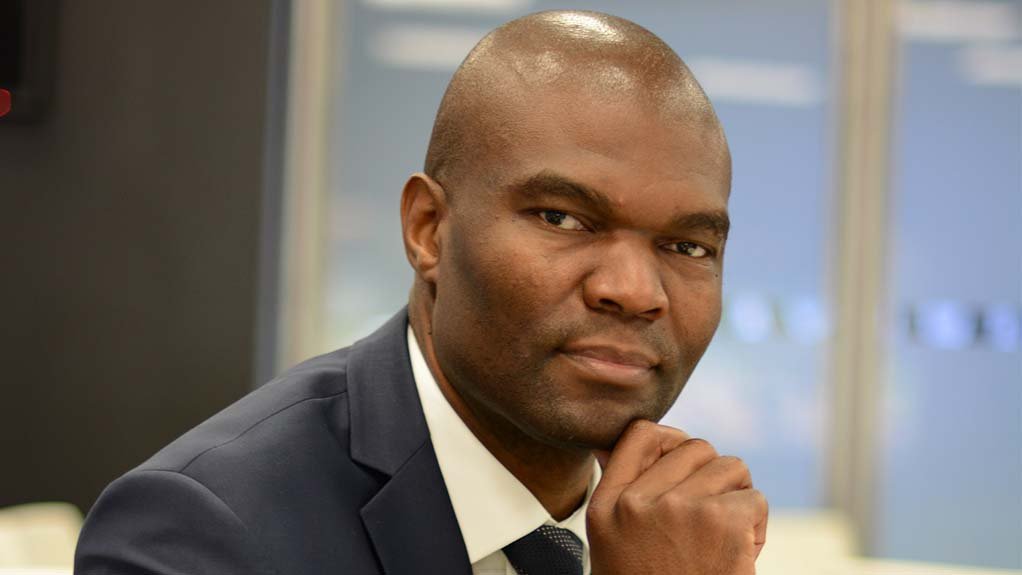South African businesses need to narrow innovation gap
This article has been supplied as a media statement and is not written by Creamer Media. It may be available only for a limited time on this website.
The South African business ecosystem faces an inescapable and growing threat: a technological disruption that has left the majority of local companies vulnerable and has furthered widened the gap between companies thriving on innovation and those being disrupted by it.
Companies need to start innovating, adopting new technologies and approaches to strengthen their core and pivoting to the new if they hope to hold their position in a disrupted market.
“Taking the first steps now can help them build a foundation that will enable them to grow, compete and thrive in a digital era,” says leading global professional services company Accenture Africa CEO Vukani Mngxati.
Accenture’s latest Innovation Maturity Index reveals that all industries are facing disruption; however, 85% of South African companies are highly susceptible to future disruption compared with 70% of companies globally.
Just 7% of South African companies, compared with 14% of companies globally, are innovating using digital technologies to grow and reshape their core businesses into new businesses.
They are also, in effect, struggling to turn their innovation efforts into business value as they take slow and narrow approaches to technological adoption.
The latest data shows that 75% of companies expect their industries to be disrupted by new innovators within the next three years, while 50% say they are not prepared for disruption.
Further, only 9% of South African industries demonstrate broad resilience and achieve consistent performance, counteracting the disruptors to remain a distant threat.
There is an acute weakness in some industries, from a lack of innovation to insufficient investment, Mngxati points out.
It is a blind spot that distracts many from a great opportunity: scaling up new ideas and venturing into new markets by harnessing innovation.
The annual in-depth study, interviewing 100 South African C-suite executives from 14 industries, reports on how companies are embracing technology innovation and measures their ability to turn opportunities into value.
Missed Opportunity
Extrapolating this research into the mining sector and including a survey of 30 local mining executives, the 'Extracting value and building resilience with data-led mining in South Africa' report shows that the mining sector is not bearing the fruits of its own attempts at digital transformation.
Accenture Resources in Africa MD Cameron Tandy says that South African mining companies are pouring millions of rands into new technologies, such as augmented and virtual reality, drones, robots, self-driving vehicles and artificial intelligence, to smartly extract the country’s mineral resources and create incremental value-creation opportunities.
However, the payoff that had been expected did not emerge owing to overlooked investments in key foundational technologies, such as advanced analytics and integrated platforms.
The mining companies’ choices of technology compared with the value-creation opportunities and the incorporation of big data are sometimes lacking, while others risk not being able to completely tap the gains available from the digital technologies already deployed.
This is resulting in some South African mining companies missing out on more than a third of a multibillion-rand direct value creation opportunity, he says.
Making the most of digital investments is particularly important for the local mining sector, as economic slowdowns and business disruptions repeatedly erase significant value from miners' books.
Innovation the Solution
While innovation is the source of the disruption, it is also the antidote to being disrupted, adds Mngxati.
“Innovation – driven by digital disruption – is opening up new opportunities to create jobs, boost economic growth and address fundamental socioeconomic and development issues,” he explains.
Accenture’s research, based on a value-at-stake framework developed in collaboration with the World Economic Forum, shows that a combination of seven digital initiatives can help South Africa’s mining sector create R213-billion in value by 2026 – almost 2% of South Africa’s gross domestic product.
The value-at-stake framework is designed to assess the impact of digital transformation initiatives on industry, customers, society and the environment, providing a differentiated and evidence-based understanding of the extent of the impact that digital transformation will have on an industry and where potential value-creation opportunities exist, Tandy says.
More than R153-billion could accrue to businesses in the form of gains impacting the top and bottom line, including increased output, reduced personnel cost, improved asset use, reduced downtime and fewer health and safety incidents.
The R60-billion balance can benefit society through cost and time savings for customers, additional productivity gains, jobs created, reduced carbon emissions and wastage, increased transparency and improved security.
Investment Focus
However, the success of digital initiatives hinge on where resources are allocated and how they are used.
“In this case, the South African mining industry must rejig its investment focus,” Tandy comments.
“Our survey shows that South African mining companies are not prioritising digital initiatives in the areas of integration and intelligence, which form the foundation to unlocking value with frontline operations.”
This unbalanced prioritisation means that, while South African mining companies are generating data across different processes and functions, they lack the capability to convert data into meaningful insights for intelligent decision-making across the company, Tandy explains.
“Based on Accenture’s experience working with mining companies around the world – and by analysing our survey results – we uncovered best practices that mining majors globally deploy to unlock gains with foundational technologies,” he explains.
The sector needs to leverage the entire ecosystem and create value through the deployment of all the key foundational technologies, such as autonomous operations; remote operations centres; smart sensors; the connected worker; cybersecurity; integrated platforms and advanced analytics.
There is also for mining companies to align the workforce skills to the technologies of choice, as well as select the right channels to close skills gaps in their organisation, to unlock the full value of these digital investments.
These foundational technologies not only underpin strategic, data-driven decision-making, they also support future digital expansion.
The upside to South Africa’s mining industry becoming a leader in digital technologies are extensive.
Investing in digital initiatives significantly enhances value through improved operational performance, better visibility across their value chains – from pit to port – and real-time, evidence-based decisions.
Technology-enabled timely and predictive decisions will help mining companies minimise hazards and unplanned mine shutdowns, as well as position the mines to respond to potential disruptions with greater speed and agility.
“With advanced analytics and a strong foundation in data combined with powerful new technologies, companies will be better positioned to unlock the full value of their digital investments,” Tandy highlights.
“Rapid advances in digital technologies offer both business and government a way to rapidly address key issues, introducing efficiencies and new business models, and opening up immense opportunities for value creation,” adds Mngxati.
Embedded Innovation
To manage it all and evolve at the speed demanded by the hyper competitive market today, organisations will need to establish their innovation DNA as part of the way they do business, he says.
This innovation gene needs to replicated it in all endeavours in all sectors of society where it can create value.
This is not just the can-do kind of innovation that South Africa is known and recognised for, but true systemic, repeatable, collaborative, problem-solving innovation of the first order – the kind that disrupts and defines successful and resurgent nations.
“When companies are in the middle of disruption, they typically make cautious moves, focusing their energies and resources on the core business that generates most income and profits,” Mngxati comments.
Companies that thrive in the age of disruption are actively innovating, aggressively investing in innovation and taking a focused and decisive approach to innovation: it is change-oriented, outcome led and disruption-minded.
These companies build deliberate innovation structures and they embed innovation into their everyday business by adopting seven innovation practices, namely being hyper relevant, network-powered, technology-propelled, asset-smart, inclusive, talent rich and data-driven.
Businesses that aim to drive growth and thrive in the digital era have much to learn from the companies that are embedding innovation into the very core of their strategy, culture and architecture, he points out.
This is both an exciting and daunting reality, depending on where you stand in the business innovation perspective; however, South African companies must ramp up their innovation capability and compete with global giants who are seeing Africa as the next mechanism for exponential growth.
“Playing it safe could cost companies in South Africa everything,” says Mngxati.
“One needs to recognise that business is changing and with it the business landscape. The old paradigms are being shifted by disruption and industries are converging to create channels to multiple services from singular entry points.”
Successful innovators share a similar approach to innovation strategy.
“They aim for disruptive advances, rather than incremental improvements. They build concentrated innovation functions, rather than dispersed teams. They balance innovation between old and new and make sure innovation is quantifiable,” he explains.
The secret to the long-term success, particularly as economies reopen amid the global Covid-19 pandemic, lies in building new capabilities and taking fresh approaches to innovation, supported by more holistic technology strategies that support innovation at scale.
Purpose, empathy and agility must be at the centre of new customer growth opportunities.
Collaborative innovation action is needed by all stakeholders in South Africa to define effective digital policies and strategies, as well as guide investment in digital transformation to deliver the greatest benefits for business and, ultimately, society.
However, no one company can address unemployment and drive economic growth alone. South Africa needs the support of all participants in the innovation value.
Innovation is vital to compete in a digitally disrupted world, create job opportunities and grow the economy.
Comments
Press Office
Announcements
What's On
Subscribe to improve your user experience...
Option 1 (equivalent of R125 a month):
Receive a weekly copy of Creamer Media's Engineering News & Mining Weekly magazine
(print copy for those in South Africa and e-magazine for those outside of South Africa)
Receive daily email newsletters
Access to full search results
Access archive of magazine back copies
Access to Projects in Progress
Access to ONE Research Report of your choice in PDF format
Option 2 (equivalent of R375 a month):
All benefits from Option 1
PLUS
Access to Creamer Media's Research Channel Africa for ALL Research Reports, in PDF format, on various industrial and mining sectors
including Electricity; Water; Energy Transition; Hydrogen; Roads, Rail and Ports; Coal; Gold; Platinum; Battery Metals; etc.
Already a subscriber?
Forgotten your password?
Receive weekly copy of Creamer Media's Engineering News & Mining Weekly magazine (print copy for those in South Africa and e-magazine for those outside of South Africa)
➕
Recieve daily email newsletters
➕
Access to full search results
➕
Access archive of magazine back copies
➕
Access to Projects in Progress
➕
Access to ONE Research Report of your choice in PDF format
RESEARCH CHANNEL AFRICA
R4500 (equivalent of R375 a month)
SUBSCRIBEAll benefits from Option 1
➕
Access to Creamer Media's Research Channel Africa for ALL Research Reports on various industrial and mining sectors, in PDF format, including on:
Electricity
➕
Water
➕
Energy Transition
➕
Hydrogen
➕
Roads, Rail and Ports
➕
Coal
➕
Gold
➕
Platinum
➕
Battery Metals
➕
etc.
Receive all benefits from Option 1 or Option 2 delivered to numerous people at your company
➕
Multiple User names and Passwords for simultaneous log-ins
➕
Intranet integration access to all in your organisation























